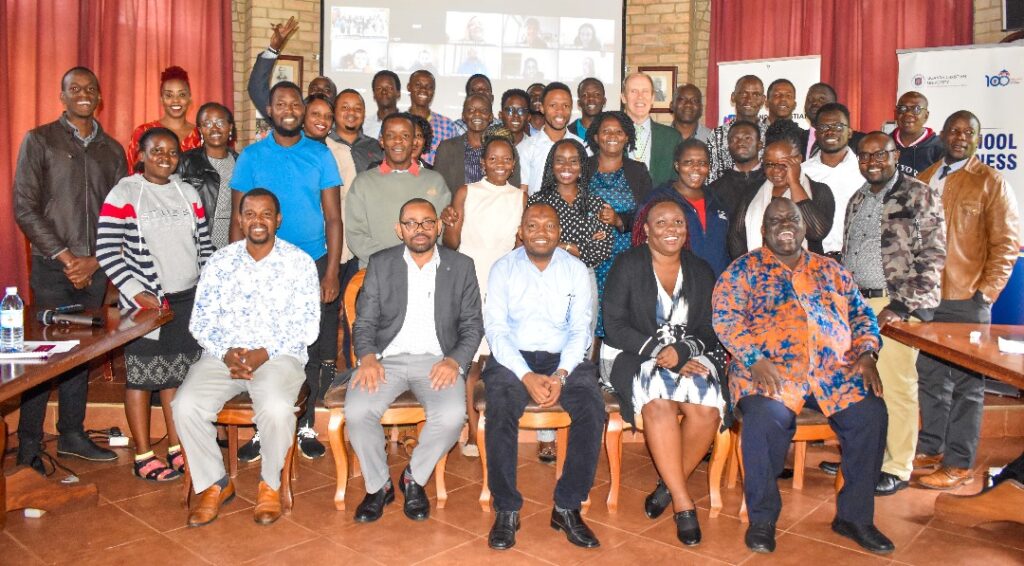By Yasiri J. Kasango, Photos By Andrew Bugembe
In an initiative aimed at tackling both unemployment and climate change, the DALILA project, through the Uganda Christian University (UCU) postgraduate diploma in sustainable business and renewable energy, has successfully equipped students with practical skills and business acumen. This was revealed during the closure of the project held at the principal’s hall at UCU.
Vincent Kisenyi, the director of academic affairs at UCU, highlighted the project’s unique approach, emphasising the fusion of classwork with hands-on, practical experiences. “Students are able to engage in renewable energy businesses while conserving the climate,” added Kisenyi.
The programme’s focus on renewable energy comes as a response to the pressing need to address climate change and reduce reliance on unsustainable energy sources. Kisenyi explained that by incorporating a business angle, the initiative encourages students to identify opportunities within the renewable energy sector, contributing to both environmental sustainability and job creation.

As the project concludes, the benefits and outcomes are becoming increasingly evident. The establishment of a renewable energy lab at the School of Business at Ankrah during the project’s course will continue to provide a platform for hands-on training, ensuring a lasting impact. Kisenyi also emphasised the potential for ongoing collaborations and networks formed during the initiative, hinting at further opportunities for students and lecturers.
During a recent event, Assoc. Prof. Elizabeth Kizito, the UCU director of Research, Innovation, and Partnership, acknowledged the success of the collaborative efforts, expressing pride in the partnerships formed across various institutions. The director emphasised the importance of continuing these collaborations, not only for the benefit of current students but also for future enrollees, ensuring a sustained impact on research and education.
The initiative has not only equipped students with practical skills but has also fostered a sense of unity among participating universities. The collaboration has resulted in a shared pool of resources, enriching cultural experiences for students, and creating opportunities for mutual learning. The programme’s impact is not confined to academic realms; it extends to preparing individuals for global challenges, particularly in responding to climate change.
As the DALILA project concludes, the call for continuity echoes loud and clear. The prospect of new students enrolling and the encouragement for ongoing teamwork suggest that the initiative’s ripple effects will persist, contributing to a brighter, more sustainable future. The success of the programme lies not only in addressing immediate challenges but also in laying the groundwork for long-term, impactful change.
David Mugawe, the Deputy Vice-Chancellor of Finance and Administration (DVCF&A), stood as the representative for the vice chancellor and expressed profound appreciation for the transformative power of collaboration. As the DALILA project concluded, Mugawe emphasised the significance of partnerships formed during the initiative. The Deputy Vice-Chancellor acknowledged that the program, as highlighted by the Vice-Chancellor, transcended the realms of academic pursuit. Instead, it emerged as a pivotal force in addressing global challenges. The programme’s dual focus on renewable energy and business not only equipped individuals with practical skills but also ignited a collective response to pressing climate issues. In a world grappling with unprecedented challenges, the Dalita programme emerged as a beacon of hope, showcasing the remarkable impact achievable through collaboration, education, and practical solutions. Mugawe’s sentiments underscore the broader implications of initiatives like Dalita, transcending educational boundaries to contribute meaningfully to global problem-solving.


